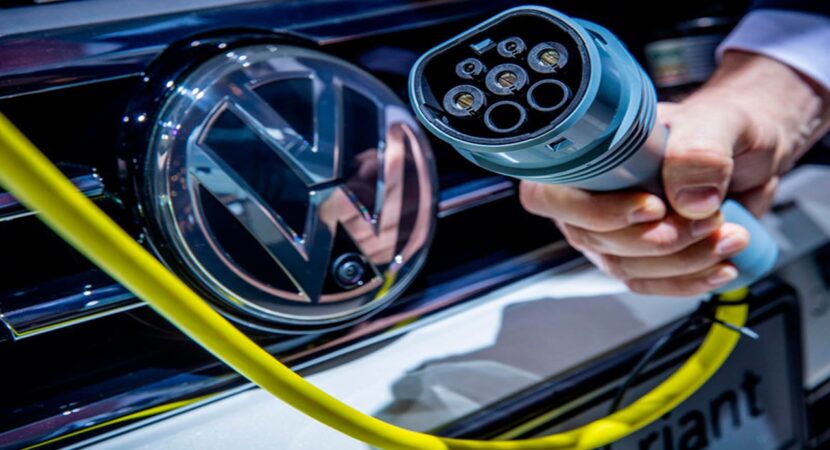
Pockets of private consumers, app drivers and taxi drivers do not support constant increases in the prices of gasoline, ethanol, diesel and CNG, and Brazilians resort to electric cars
With the constant rise in the prices of gasoline, ethanol, diesel and CNG, Brazilian consumers are turning to electric cars. From January to July 2021, according to data collected by CARCON AUTOMOTIVE, 17.554 electrified light vehicles were sold in Brazil against 9.263 in the same period in 2020. These data show an 85% growth in sales in this segment, while total sales of light vehicles had a total increase of 25%.
Read also
- Ecovix shipbuilding yard announces that it is about to invoice repair and maintenance works for ships that provide services to Petrobras and many jobs will be generated and preserved
- Multinational MODEC recruits candidates without experience for onshore activity in Macaé (RJ); job vacancies today (29/09) are for newly graduated engineers
- Ants and locusts of Sovereign Funds: Rio de Janeiro, Brazil's biggest oil and gas producer, doesn't have a penny in savings to safeguard the state's future
- Resolution on decommissioning guarantees is approved by the regulatory body for activities that integrate the oil and natural gas and biofuels industries in Brazil
- WEG, one of the largest manufacturers of electric motors in the world, calls for job openings for professionals with and without experience in the positions of production operator, technician, welder and much more
In the graph below, we can see the share of sales of electrified light vehicles over the last few years, compared to total sales, and we can see a very interesting growth in this share, considering the absence of a strategy for the sector.
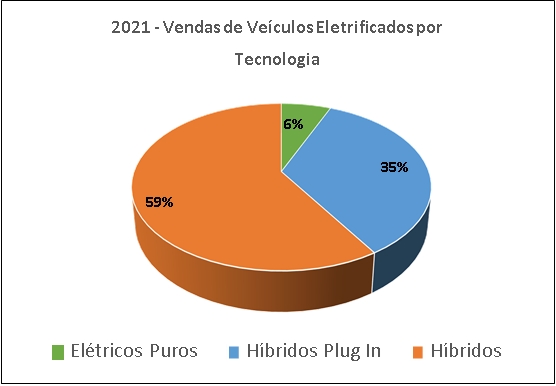
35.500 electric cars are expected to be sold by the end of 2021
CARCON AUTOMOTIVE's projection for the end of 2021 is that we will reach 35.500 electric cars sold, or an increase of 88% over 2020. Even far from many countries that have implemented specific strategies to encourage vehicle electrification, we note an important increase in this trend. The chart below shows the distribution by type of technology:
The following graph shows the distribution of sales by automaker, with Toyota predominating, thanks to the great sales success of its hybrid models.
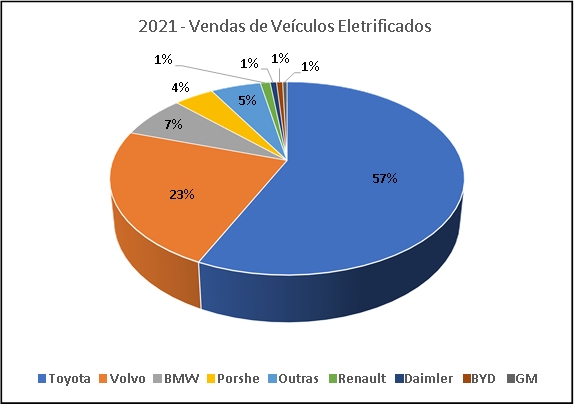
Petrobras is studying the possibility of raising gasoline and diesel prices at refineries again
Executives from Petrobras presented last Monday (the 27th), in a hastily convened press conference, explanations on the formation of the price of gasoline and diesel, whose increase was mentioned earlier by President Jair Bolsonaro in a ceremony in Brasília as a of the factors that fuel inflation. The executive director of marketing and logistics, Cláudio Mastella said that Petrobras is considering raising fuel prices at its refineries.
Mastella, a Petrobras executive, pointed out that, in recent months, there have been significant changes in the international market, but that most of them have been offset by exchange rate fluctuations in the opposite direction. However, a reduction in the supply of oil, especially in the United States, and a prospect of increased international demand for energy sources have pushed prices up. “As a result, we are looking more fondly, carefully, at the possibility of readjusting fuel prices,” said Mastella.
The desperation of some Brazilian consumers to fill up their vehicles has led them to switch from gasoline to cooking gas. The practice has become increasingly frequent even with cases of explosions
The new 'fashion' among consumers is to clandestinely convert gasoline vehicles so that they can be fueled with LPG, commonly known as cooking gas. The practice has become frequent and already has some cases of serious explosions. On e-commerce sites, such as Mercado Livre, the so-called “kit for converting cars to LPG” is being sold for amounts ranging from R$500 to R$1. Sellers promise savings of 80%, when in fact, they are selling a risk to the life of those who purchase this kit.
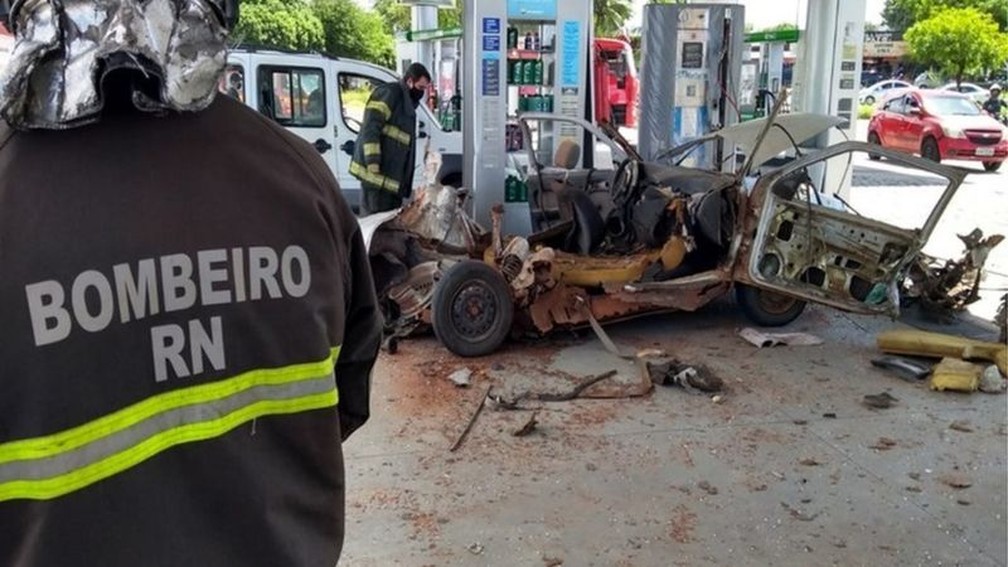
In addition to being an illegal practice, refueling and moving around with a vehicle fueled with cooking gas exposes all people inside the car and in the immediate vicinity to a high risk of explosion.
In the Chamber of Deputies, a bill (4217 PL / 19) was approved by the Constitution and Justice Commission (CCJ) in August and is now ready to be voted in plenary. This project has divided many opinions in the gas sector.
Representatives of the Vehicle Natural Gas (NGV) segment are against the approval of the law, arguing that it may increasingly stimulate clandestine conversion and that with the increase in demand, cooking gas becomes more expensive for families, taking into account considering that currently around 30% of the LPG consumed in Brazil is imported.




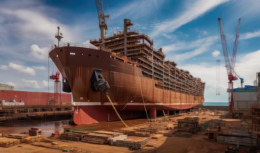
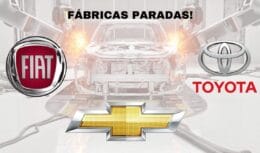


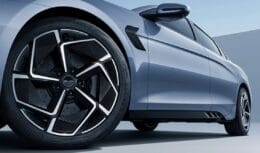
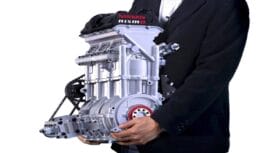



Air Force F-16 fighters…
True friend, what they shot down were…
Air Force F-16 fighters…
I would like to know what planet you live on…
Air Force F-16 fighters…
Which genocide are you talking about? Than…
Air Force F-16 fighters…
Everything is fine, 100-year secrecy,…
Air Force F-16 fighters…
Well... It's flying scrap... Typical...
I am a master in civil construction. And I would like…
I would like to know more information regarding…
I have interest
Hydrogen. The future is hydrogen…
I have a lot of experience in dairy farming and would like to…
I already served in the 3rd engineering battalion…
I am a nursing technician, I would really like to work in…
I'm interested